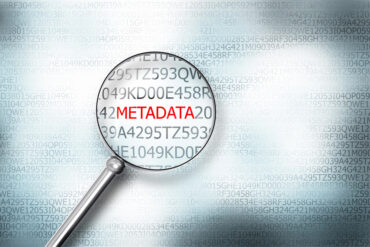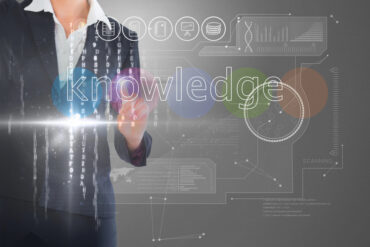
In this week’s real-time analytics news: The Object Management Group announced the cross-consortia Artificial Intelligence Joint Working Group, bringing together advanced AI and digital twins.
Keeping pace with news and developments in the real-time analytics and AI market can be a daunting task. Fortunately, we have you covered with a summary of the items our staff comes across each week. And if you prefer it in your inbox, sign up here!
The Object Management Group (OMG) announced the cross-consortia Artificial Intelligence Joint Working Group, bringing together the collective intelligence of OMG’s consortia to advance AI integration with digital twins, augmented reality (AR), and related technologies.
The new working group will align AI-related activities across four main areas:
- Standardization and Semantics: This subgroup will explore the potential role of AI in standardization, gathering use cases from the digital twin and extended reality areas to identify scenarios in vertical industry domains and horizontal technologies where standardization would be beneficial. It will explore the role of AI and formal semantics in data integration, enabling the implementation of FAIR (findable, accessible, interoperable, reusable) principles.
- Interoperability and Intelligent Automation:This sub-group will develop comprehensive frameworks for interoperability, intelligent automation, and generative AI with agent-based systems. These frameworks will provide guidance for creating intelligent, interoperable, trusted, and autonomous systems. This will include defining and developing the required key assets and promoting industry use.
- eXtended Reality (XR): This subgroup will focus and emphasize the convergence of eXtended Reality (XR) technologies, encompassing augmented reality (AR), virtual reality (VR), and mixed reality (MR) and the intersection of artificial intelligence (AI). These technologies, while powerful individually, can create synergistic effects when combined, leading to innovative solutions and enhanced operational efficiencies.
- Responsible AI: This subgroup will develop a comprehensive framework for responsible AI governance by examining current standards and promoting ethical AI practices across different industries and levels of maturity. The subgroup will focus on creating a toolkit that supports both current AI implementations, including privacy and data provenance, with the anticipated shift towards digital twin-based, multi-agent, autonomous AI systems.
The Open Source Initiative (OSI) announced the release of the Open Source AI Definition (OSAID). The release of version 1.0 offers a standard by which community-led, open and public evaluations will be conducted to validate whether or not an AI system can be deemed Open Source AI. This first stable version of the OSAID is the result of multiple years of research and collaboration, an international roadshow of workshops, and a year-long co-design process led by the Open Source Initiative (OSI), globally recognized by individuals, companies, and public institutions as the authority that defines Open Source. OSAID v.1.0 is available for public use.
Salesforce announced the general availability of Agentforce, a new layer on the Salesforce Platform that enables companies to build and deploy AI agents that can autonomously take action across any business function. Agentforce goes beyond chatbots and copilots, using advanced reasoning abilities to make decisions and take action.
In addition, Agentforce includes out-of-the-box agents that are easy to customize and deploy with low-code or no-code tools and that work around the clock across any channel. Agentforce Service Agent, a generally available out-the-box agent, outperforms traditional chatbots by handling a wide range of tasks, from simple to complex, with pre-built topics and actions for customer support.
Other real-time analytics news in brief
ABBYY previewed a suite of new innovative capabilities for purpose-built AI that empower businesses to accelerate ROI in their automation initiatives. These includePhoenix, a multi-modal approach to zero-shot learning leveraging small language models,purpose-built for document tasks, a Secure Large Language Model (LLM) Gateway, and enterprise-ready tools and applications that enable global enterprises to gain more value and insight into business-critical document processes.
Alation announced the release of Alation Anywhere for Google Chrome to streamline contextual data discovery and empower users to act on data intelligence within Chrome. The extension allows users to seamlessly search, preview, and retrieve critical metadata from Alation without leaving the browser, delivering trusted, governed data. The extension is the latest addition to Alation Anywhere, which integrates data intelligence into Slack, Microsoft Teams, Excel, and Google Sheets.
Apptio, an IBM company, unveiled a series of new features and updates across its portfolio of technology business management (TBM) and FinOps solutions. The updates include Apptio AI Assistant, now in Beta, powered by the IBM watsonx AI platform, to help users obtain immediate answers to questions, product guides, and more; IBM Apptio Essentials Suite; expanded workforce analyticsin IBM Targetprocess to enhance cross-organizational spend visibility, optimize resource allocation, and ensure team alignment with business goals; and more.
CHOROLOGY.ai unveiled the AI innovations behind its Compliance and Security Posture Enforcement Platform (CAPE) to reveal Compliance and DSPM industry-firsts in artificial intelligence. Powered by a confluence of three core AI technology sub-fields, Chorology’s Automated Compliance Engine (ACE) is built on AI-based Knowledge Encoding, a new Domain Language Model (DLM) Paradigm, and AI Planning Automation. These patented technologies provide a solution that delivers a complete view of ALL sensitive enterprise data (known and unknown) throughout structured and unstructured environments.
Cisco announced an AI server family purpose-built for GPU-intensive AI workloads that uses NVIDIA accelerated computing and AI PODs to simplify and de-risk AI infrastructure investment. Cisco’s new solutions provide customers with the infrastructure pieces they need to accelerate their AI adoption, no matter their current starting point. The new solutions are managed by Cisco Intersight, which enables centralized control and automation, simplifying everything from configuration to day-to-day operations.
DataStax announced the enhancement of its GitHub Copilot extension with its AI Platform-as-a-Service (AI PaaS) solution. This extension makes it easier for developers to directly interact with DataStax Langflow and their Astra DB databases’ vector, tabular, and streaming data right from their IDE (integrated development environment) through the DataStax GitHub Copilot Extension.
Dremio announced that its Data Catalog for Apache Iceberg now supports all deployment options—on-prem, cloud, and hybrid. The company claims that makes Dremio the only lakehouse provider to deliver full architecture flexibility. Additionally, Dremio announced integrations with Snowflake’s managed service of Apache Polaris (incubating) and Databricks’ Unity Catalog managed service.
Immuta announced an expansion of its platform with the launch of a new Data Marketplace solution to power fast and safe internal data sharing. Fueling a data marketplace that is owned and managed by the customer, the Immuta Platform enables rapid, data-driven decisions by bringing together data teams and data users to automate discovery and access while still providing enterprise-grade governance and security.
Lenovo and Cisco unveiled offerings to simplify work environments, optimize enterprise infrastructure, and clear the path to enterprise AI through leveraging aspects of Cisco’s Collaboration Devices, networking, and security. Among the solutions announced were Truscale Meeting Room as a Service (TS MRaaS), TruScale WorkSmart, Factory and Rack Integrated solutions, ThinkAgile HCI hybrid cloud, and SAP HANA solutions with Cisco networking integration. Each solution aims to simplify IT to enhance user outcomes and help organizations operate more efficiently.
New Relic unveiled the New Relic Intelligent Observability Platform. The platform is strengthened by the New Relic AI Engine to predict and prevent issues and streamline business and IT operations with automation. It includes new innovations like the New Relic AI integration with GitHub Copilot, New Relic Pathpoint Plus, and New Relic Retail Solution.
Opsera announced that it has partnered with Databricks to empower software and DevOps engineers to deliver software faster, safer, and smarter through AI/ML model deployments and schema rollback capabilities. To that end, Opsera is now part of Databricks’ Built on Partner Program and Technology Partner Program. The partnership enables AI/ML model deployments with security and compliance guardrails, schema deployments with rollback capabilities, and more.
Patronus AI announced the launch of the Patronus API, a self-serve solution that empowers developers to reliably detect and prevent AI failures in production. With the Patronus API, companies can now safeguard their generative AI systems against hallucinations, safety risks, and unexpected behavior with unparalleled precision and recall. The Patronus API also offers the flexibility to configure LLM judges that evaluate custom criteria—across capabilities, safety, and alignment—making it a versatile solution for any AI use case.
Pegasystems announced the general availability of Pega Infinity 24.2. This latest release of Pega’s core portfolio of cloud-ready products introduces new generative AI capabilities and enhancements to its solutions across industries, including Pega Platform, Pega Customer Decision Hub, Pega Customer Service, and Pega Sales Automation. The new features and the solution help organizations use AI to accelerate digital transformation at enterprise scale.
Securiti announced the release of Gencore AI, a holistic solution to easily and quickly build safe, enterprise-grade generative artificial intelligence (GenAI) systems, copilots, and AI agents. Gencore AI helps organizations safely connect to hundreds of data systems while preserving data controls and governance as data flows into modern GenAI systems. It is powered by a knowledge graph that maintains granular contextual insights about data and AI systems.
Siemens announced it will buy the engineering software firm Altair Engineering for $10.6 billion, strengthening its position in the growing market for industrial software. The deal, Siemens’s second biggest acquisition, is part of the German engineering group’s increased focus on a sector being revolutionized by data analysis and artificial intelligence.
StreamNative made a series of announcements this week. They include the public preview of Ursa Engine, which is built upon Apache Pulsar’s cloud-native architecture. Ursa Engine is a 100% Kafka-compatible engine that is built on data lakehouses, which will reduce customers’ data streaming infrastructure costs. The company also announced Universal Linking (UniLink),a service that simplifies how organizations handle data replication and migration between different streaming platforms, offering a more cost-effective approach compared to traditional methods.
The Modern Data Company announced the Data Product Hub, a new addition to its DataOS platform. The Data Product Hub streamlines data consumption, serving the majority of data product use cases and enabling business users to leverage data products independently. To that end, the DataOS Hub democratizes access to trusted data and accelerates digital transformation across the enterprise. As such, it supercharges DataOS by democratizing trusted data access across the organization, empowering business users to apply data to make confident, data-driven decisions without technical constraints.
Timescale expanded its PostgreSQL AI offerings with the launch of a new tool, pgai Vectorizer, which is available as open-source and hosted in the cloud. Pgai Vectorizer lets any developer build advanced AI applications without the need for external tools or specialized expertise. This release, along with the pgai suite of PostgreSQL extensions— pgai and pgvectorscale— reduces infrastructure costs.
If your company has real-time analytics news, send your announcements to ssalamone@rtinsights.com.
In case you missed it, here are our most recent previous weekly real-time analytics news roundups:
- Real-time Analytics News for the Week Ending October 26
- Real-time Analytics News for the Week Ending October 19
- Real-time Analytics News for the Week Ending October 12
- Real-time Analytics News for the Week Ending October 5
- Real-time Analytics News for the Week Ending September 28
- Real-time Analytics News for the Week Ending September 21
- Real-time Analytics News for the Week Ending September 14
- Real-time Analytics News for the Week Ending August 31
- Real-time Analytics News for the Week Ending August 24





























